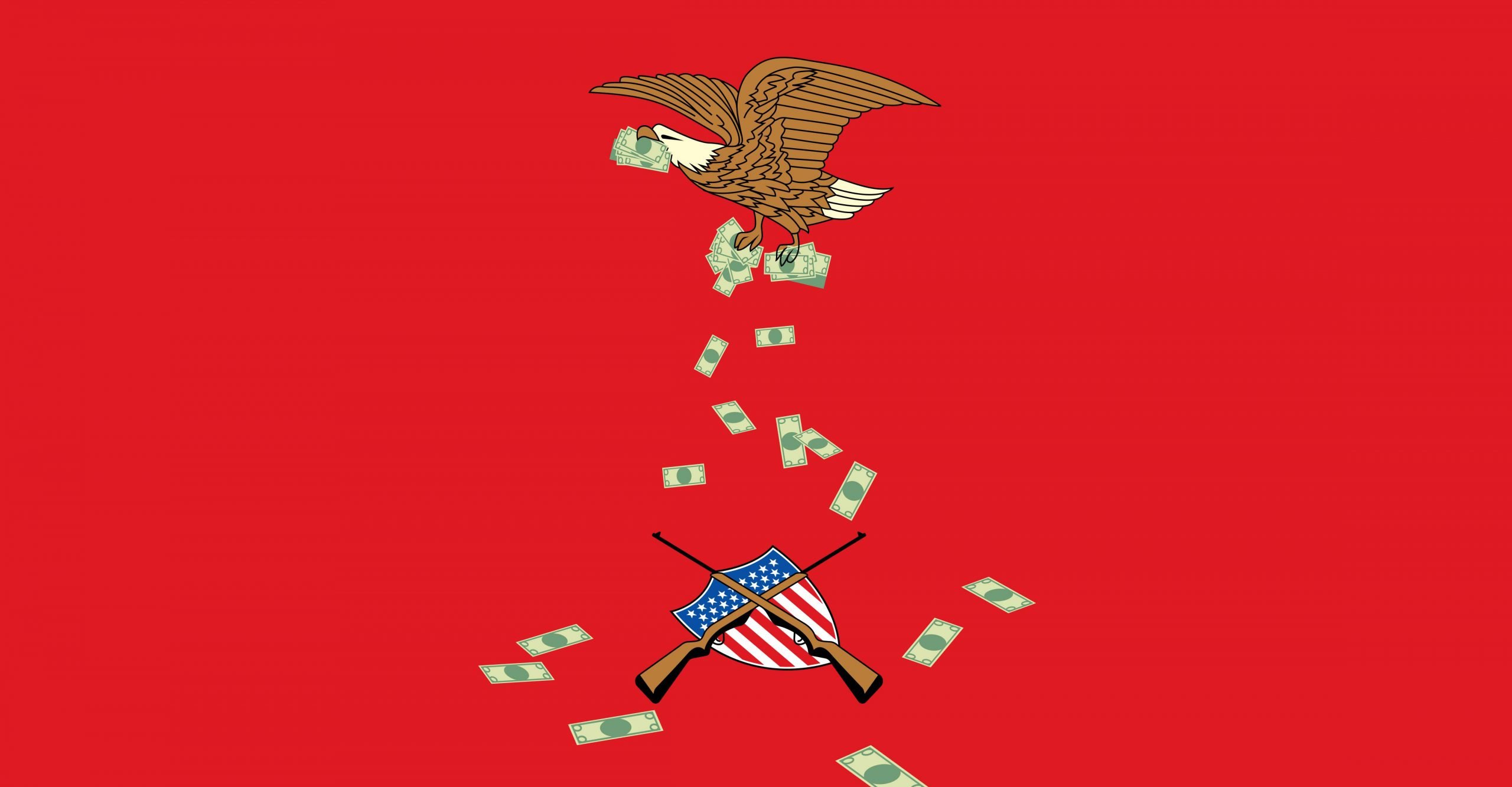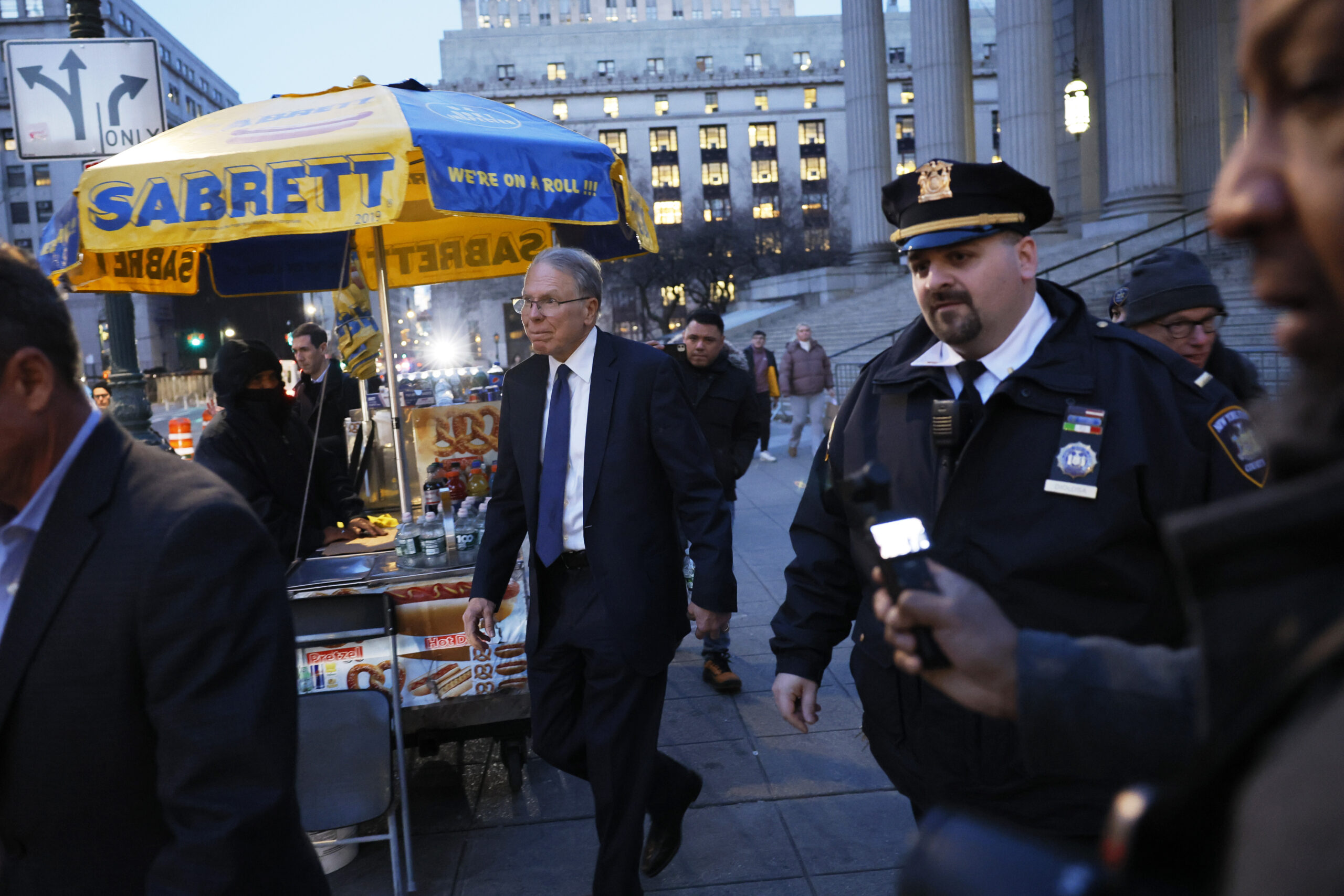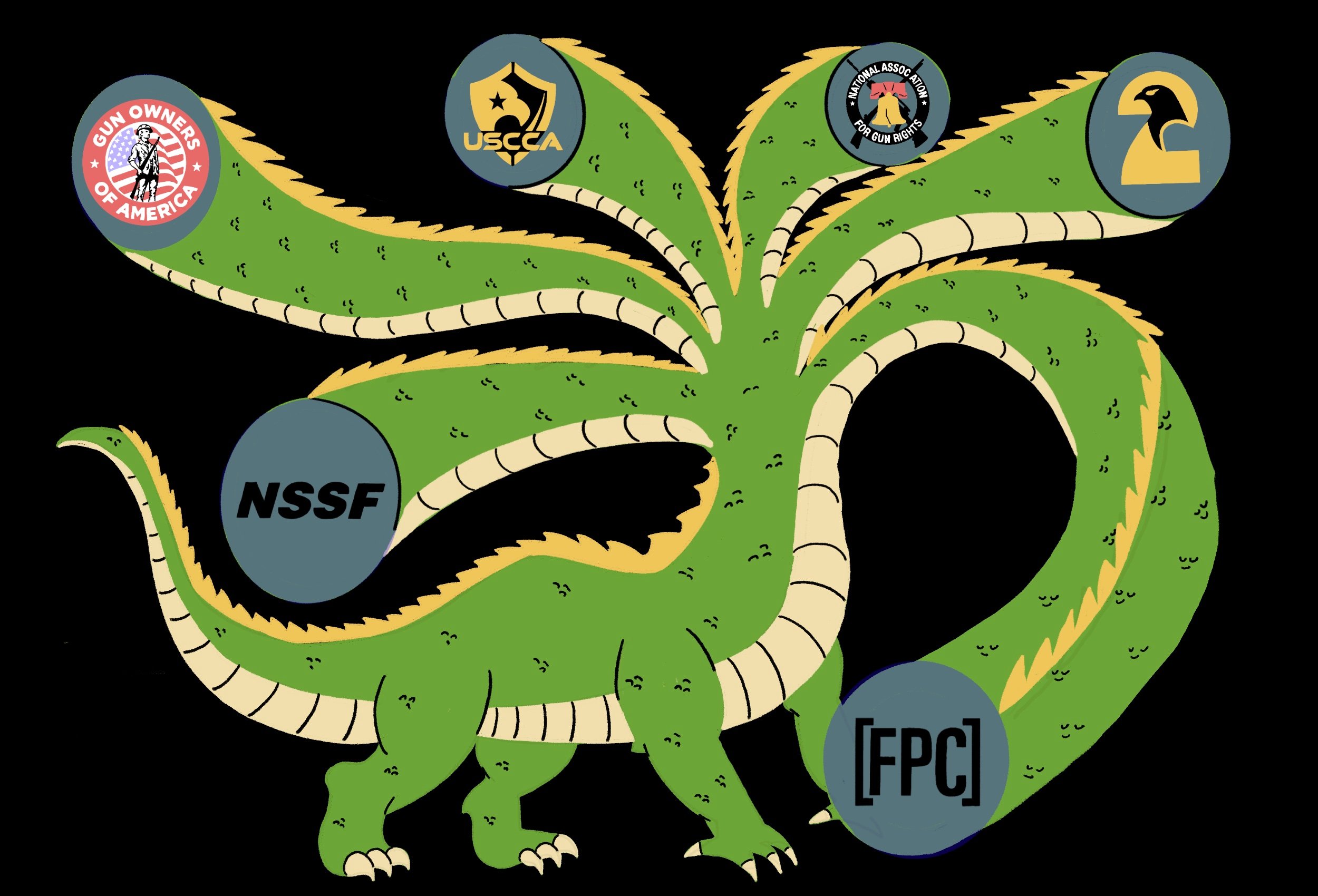Midway through week two of the National Rifle Association’s ongoing civil corruption trial in Manhattan last month, a defense attorney asked the organization’s chief financial officer whether the NRA had ever received “an inquiry from the IRS” about its annual tax filing. “Yes,” answered Sonya Rowling, who joined the NRA in 1999 and became CFO in 2021. “Just recently. A couple months ago maybe. Right before the holidays.”
Rowling said she was unaware of any prior Internal Revenue Service contact about the group’s tax return. Her testimony was the first public mention of agency interest in the NRA since the IRS claimed during the gun group’s failed 2021 bankruptcy that the NRA owed it money. In October 2020, The Wall Street Journal reported that the IRS was investigating CEO Wayne LaPierre for “possible criminal tax fraud related to his personal taxes.” Since that report, no new details have emerged, however a previously unreported document may provide clues.
The document, released following a 2021 ransomware attack on the NRA, appears to be notes that the gun group compiled as part of a liability insurance application for its directors and officers. The notes reveal that in June 2021, a grand jury in the U.S. District Court for the Eastern District of Virginia sent a subpoena to Craig Spray, then the NRA’s CFO.
While the IRS can initiate tax fraud investigations, only the Justice Department can bring criminal actions. The department’s subpoena of Spray, who LaPierre would fire later that year, suggests that a federal probe was then underway.
“The NRA understands that Mr. Spray is neither a target nor a subject of the grand jury investigation, but is being asked to testify as a witness,” the undated document states. “Mr. Spray and the NRA believe that he is being asked to provide the testimony at least in part in his capacity as a former officer and employee of the NRA. As of the date of this application, the NRA has not been informed that it is the target of the investigation, or of whether the investigation involves the organization itself or only individuals acting in their personal capacities.” Through an attorney, Spray declined to comment.
Grand juries typically sit for less than a year, although a prosecutor can empanel a new jury and summarize evidence previously presented, said Brian Galle, a tax policy professor at Georgetown University and former prosecutor in the Justice Department’s tax division. “It would be unusual to keep a grand jury investigation open for 3 years without an indictment,” Galle said, “so usually that long of a period indicates that the government opted not to indict.”
After The Trace and other news organizations revealed widespread self-dealing and abuse of NRA assets by leadership in 2019, some experts in nonprofit law said that the IRS was duty-bound to take action and that certain of the exposed misdeeds were potentially criminal. Of particular concern, these experts said, was a scheme that allowed LaPierre, who announced his resignation as NRA boss just days before the trial began, to hide lavish expenditures.
While it’s impossible to be sure, and the timing seems awfully slow, the recent contact that Rowling described at the NRA trial suggests an audit, Galle said in an email. “Any alive and alert IRS would be auditing the NRA,” he said. “When the New York attorney general, the best state regulator in the country, accuses a firm’s executives of pervasive and massive self-dealing, and then one of them resigns on the eve of trial (essentially an admission of guilt), that’s as clear a signal the IRS is ever going to get that the organization has probably violated federal tax law.”
The NRA did not respond to written questions and requests for comment.
The IRS audits nonprofits in two ways: by correspondence, in which the agency sends a request for documents, or by agents physically visiting an organization to collect information. The IRS also conducts compliance checks over minor matters, those that don’t rise to the level of an audit.
Phil Hackney, a law professor at the University of Pittsburgh and former attorney in the IRS’s office of chief counsel, said auditors generally examine only the past three years of filings, unless they detect fraud — intentional falsification of a tax return. Audits often end with warnings or corrective guidance. The most severe penalty that the IRS could impose on the NRA, revoking its tax-exempt status, is not an option, Hackney said. “The IRS has to take into account the public,” he said, “and the public has a right to its organizations. I’m not a fan, but the NRA is an important, legitimate American organization that deserves to go on, hopefully with less graft.”
New York Attorney General Letitia James has only civil enforcement authority over nonprofits. Pressed on possible criminal referrals when she announced her lawsuit against the NRA in 2020, James said that the Manhattan District Attorney’s Office would be alerted to any evidence of crime and that she was giving her complaint, which alleges IRS violations, to the agency.
Some of these alleged violations allowed LaPierre and other leaders to use the NRA to pay for private jet travel, luxury hotel stays, limousine service, and pricey meals. LaPierre quietly routed expenses through the organization’s longtime public relations firm, Ackerman McQueen. Ackerman issued credit cards to LaPierre and others to pay for their extravagances. Ackerman then submitted vague invoices back to the NRA for the costs. Only a select group within the NRA was aware of the arrangement, which cost the gun group $4.3 million from 2015 to 2019, according to an accountant hired by the attorney general.
As The Trace recently reported, in 2009, architects of the Ackerman arrangement discussed how it could enable them to avoid disclosing LaPierre’s use of chartered flights to the IRS. “We just have to be careful because Wayne wants to get through this whole year saying he hasn’t used private aircraft,” explained a top finance official. The NRA did ultimately report to the IRS that executives had taken chartered flights, as required, but did not identify them by name.
The bond between the NRA and Ackerman broke in 2019, with mutual allegations of betrayal and fraud leveled in court. The attorney general contends that the passthrough arrangement continued until that implosion. The statute of limitations for criminal tax fraud is six years, though Galle said that when investigations are ongoing, targets sometimes agree to extensions when told their only other choice is immediate indictment.
To address governance failures and shield itself from regulators and law enforcement, the NRA has said that it began a clean up effort as far back as 2017. Details of that work became public in November 2020 when the group admitted in its annual tax return that LaPierre and others had improperly benefited from transactions involving the organization’s money.
In every annual return since, the NRA has reported additional improper transactions, as well as the amount that LaPierre repaid to the organization and an estimate of what he owed the IRS for his misuse of funds.
The NRA’s 2023 return won’t be filed until November. A document introduced in the attorney general’s case states that it will include an admission of still more improper benefits and that LaPierre wrote checks to the organization totaling $325,000 last year. That payment addressed transactions through 2018, and like earlier disclosures, some involved the Ackerman expense arrangement.
Asked about its recent inquiry to the NRA regarding its tax returns, an IRS spokesperson declined comment, citing federal privacy laws. “What’s sort of sad, in terms of the current state of federal nonprofit oversight, is that the end of last year appears to be the IRS’s first contact with the NRA in decades,” said Galle, the former Justice Department prosecutor. “Where have they been?”



